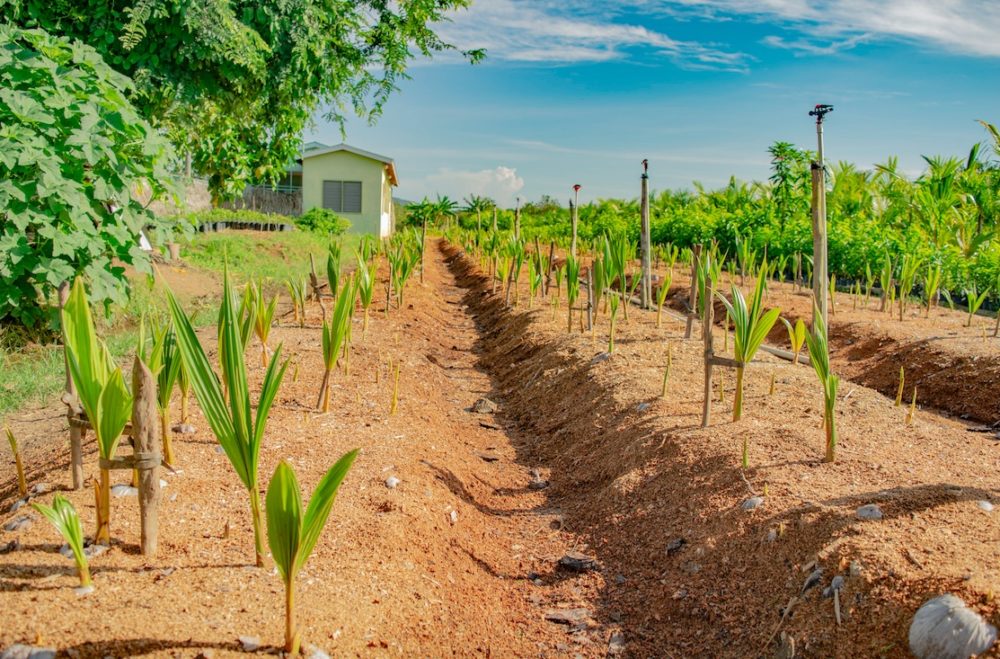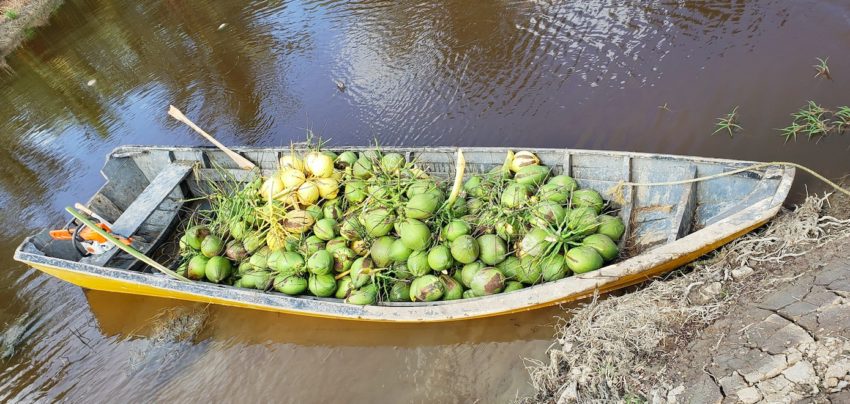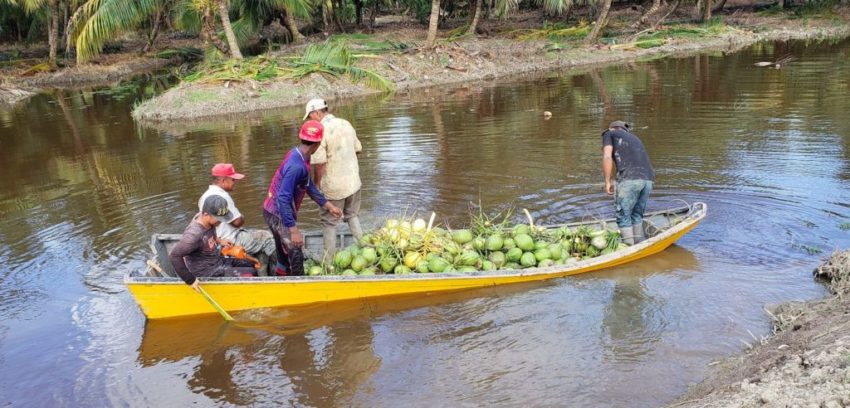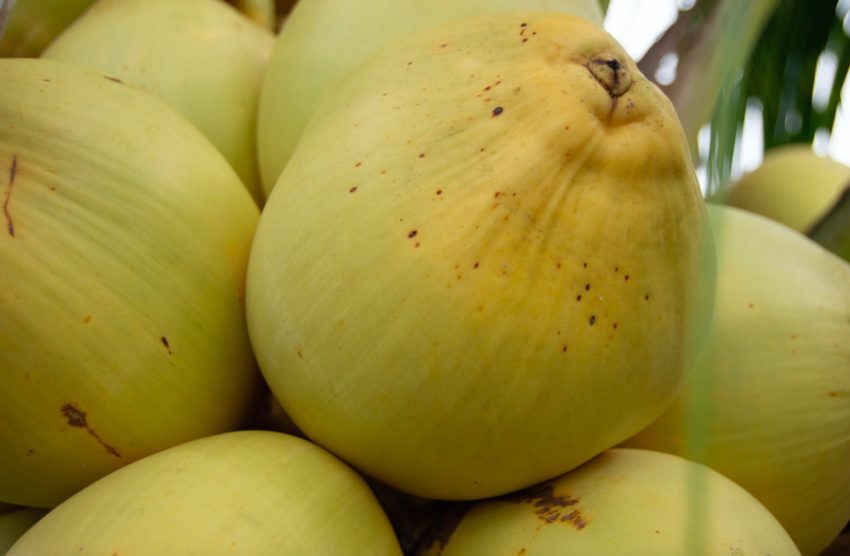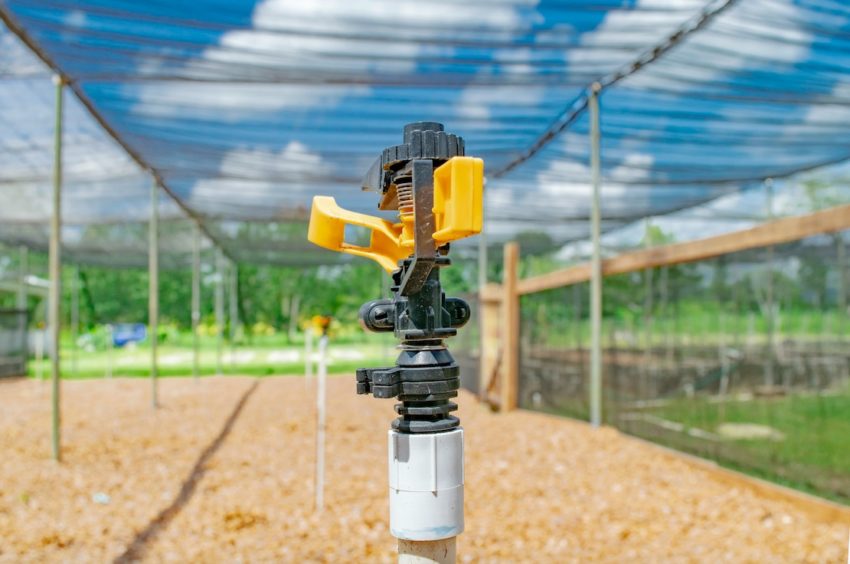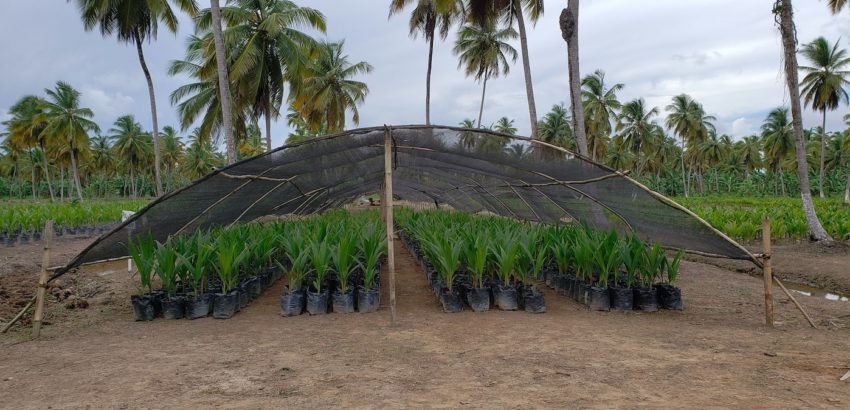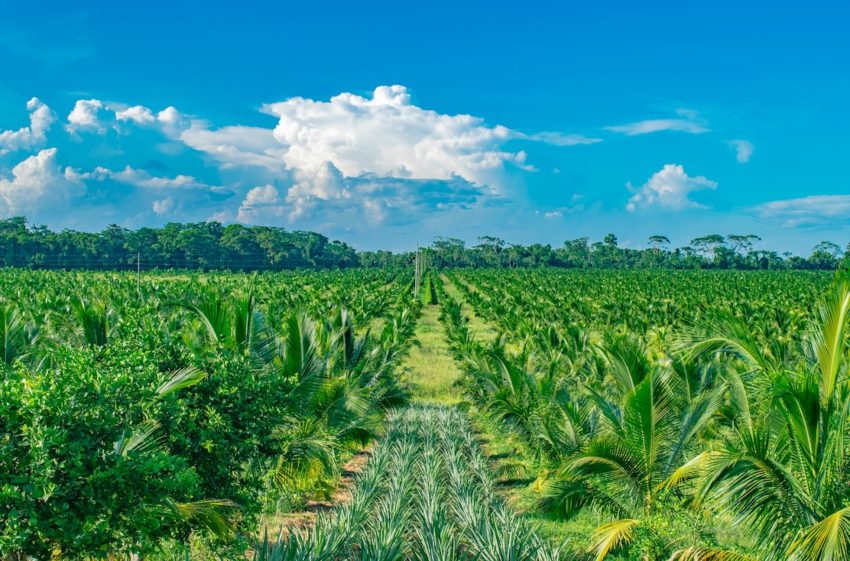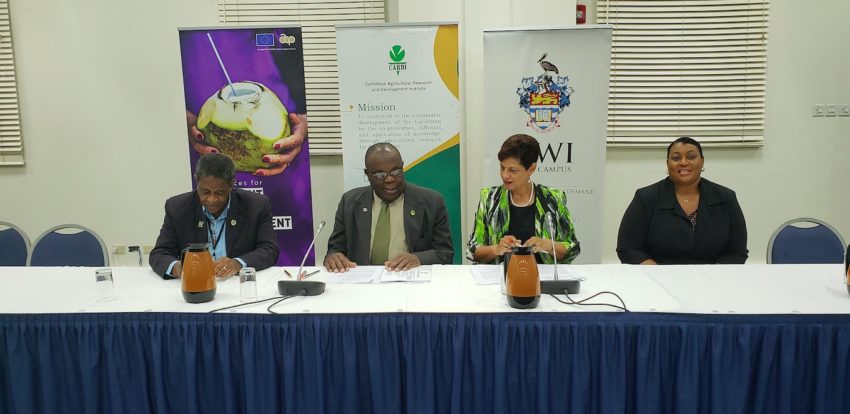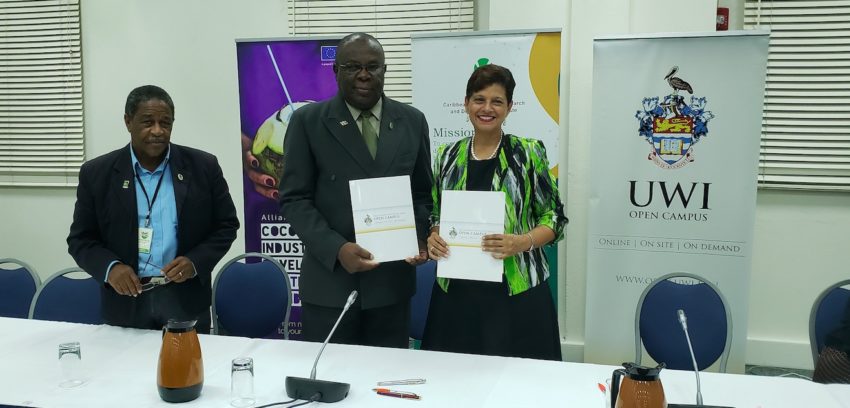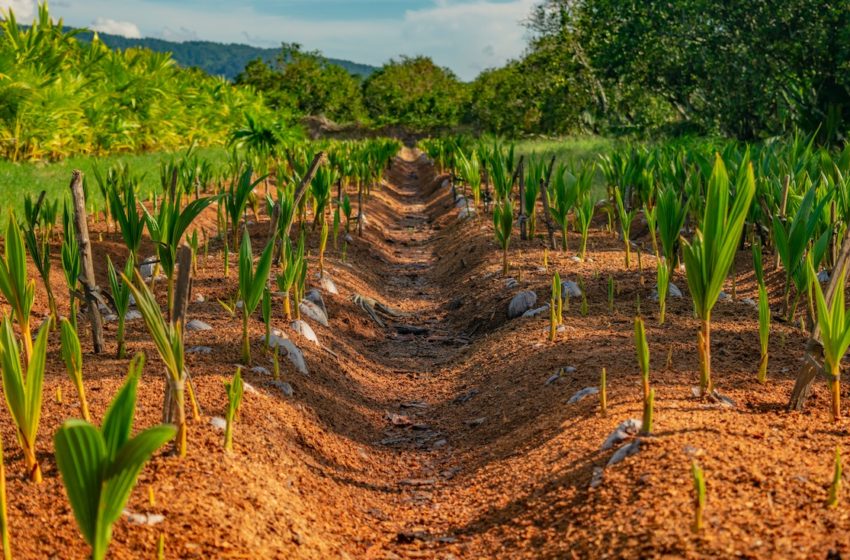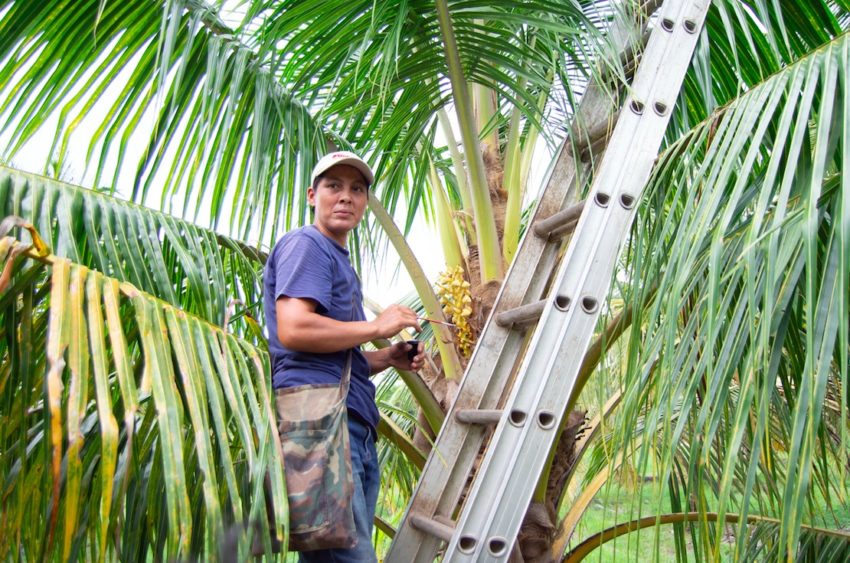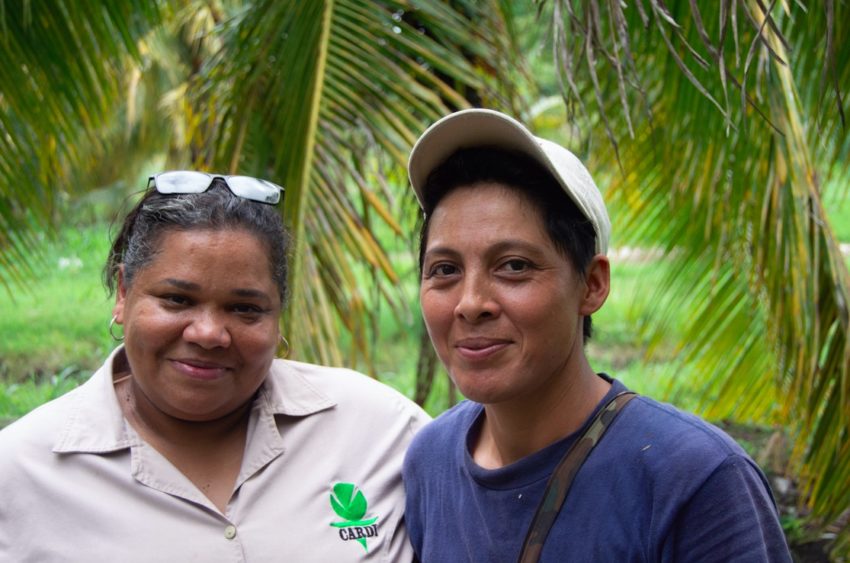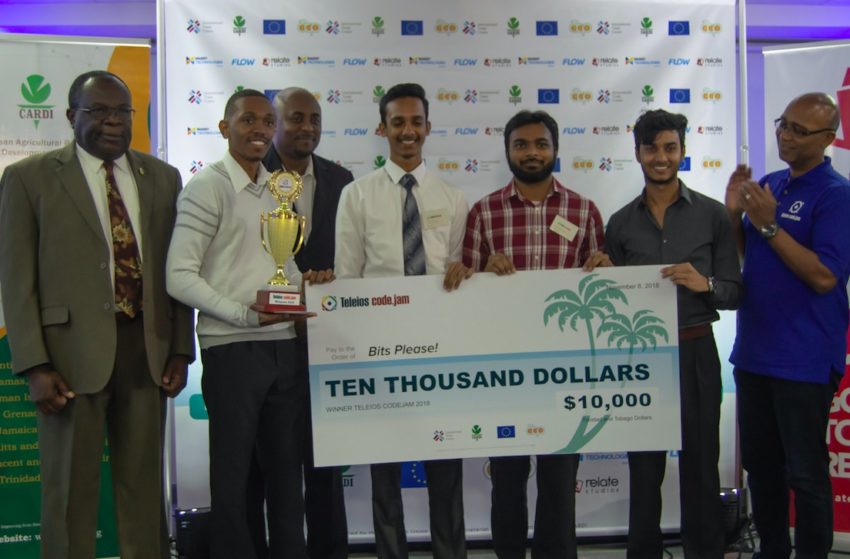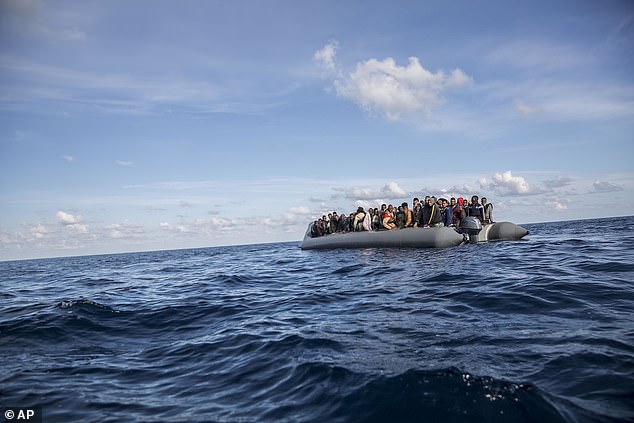![]() This article is part of our Editorial Series called “GFAR impakters”. This is done in partnership with GFAR – The Global Forum on Agricultural Research and Innovation – For more follow on Twitter: #GFARImpakters or view here.
This article is part of our Editorial Series called “GFAR impakters”. This is done in partnership with GFAR – The Global Forum on Agricultural Research and Innovation – For more follow on Twitter: #GFARImpakters or view here.
Propelled by a health and wellness trend, the global demand for fresh coconuts, coconut based by-products, and value added products are at an all-time high and continuing to grow exponentially. Demand at both the global and regional levels now exceeds supply, with the production base seriously lagging behind.
The potential economic and socio economic benefits from the recent surge in demand for coconuts are significant to the Region. This has led to a progressive regional refocus on the coconut industry, in the Caribbean, as a viable economic option with major implications for intra-Regional and global trade, and diversification of the agricultural sector. Revitalising the sector will enable the Region to capitalise on the growing global demand for fresh coconuts, coconut based by-products and value added products.
 In The Photo: Coconut Harvest. Photo Credit: CARDI.
In The Photo: Coconut Harvest. Photo Credit: CARDI.
 In The Photo: Coconut Harvest. Photo Credit: CARDI.
In The Photo: Coconut Harvest. Photo Credit: CARDI.
Zenith Global, a food and drink consultancy group based in the UK, has reported the overall alternative waters market had grown by 21% in 2016 to a value of $2.7 billion, and projected it would double in size to reach $5.4 billion by 2020. Coconut water dominates this sector, accounting for 96% of volume and 86% of value in 2016.
Also, due to the increasing application of coconut products and by products in the food, beverage and cosmetic industries, significant positive growth is also forecasted for coconut milk, coconut sugar and virgin coconut oil.
 In The Photo: Coconut bunch. Photo Credit: CARDI.
In The Photo: Coconut bunch. Photo Credit: CARDI.
In 2015, CARDI and the International Trade Centre began co-implementing the 4 year project “Coconut industry development in the Caribbean” funded under the 10th EDF in the nine CARIFORUM countries of Belize, Jamaica, Dominican Republic, Trinidad and Tobago, Guyana, Suriname, St. Vincent and the Grenadines, Dominica and St Lucia. Antigua, Barbuda and Barbados expressed an interest in developing their coconut industries and have also begun receiving assistance under this project.
Through targeting smallholder producers, this project aims to improve their competitiveness through improved production and better integration.
 In The Photo: Coconut Nursery Irrigation. Photo Credit: CARDI.
In The Photo: Coconut Nursery Irrigation. Photo Credit: CARDI.
 In The Photo: Coconut Nursery. Photo Credit: CARDI.
In The Photo: Coconut Nursery. Photo Credit: CARDI.
The Project Comprises four Components:
CARDI is directly responsible for implementing Components 2 and 4 which address the following principal activities:
- Increasing the production volumes of the right quality of coconuts
- Improving risk planning and access to risk management tools for small producers
The ITC on the other hand is leading the implementation for Components 1 and 3 which include the following main activities:
- Improving the coordination and cooperation across the Region and ACP coconut countries
- Improving access of small producers to advisory services and finance
 In The Photo: Coconut intercroping with pineapple. Photo Credit: CARDI.
In The Photo: Coconut intercroping with pineapple. Photo Credit: CARDI.
About the Project
The Caribbean Coconut Industry Development Project (CCIDP) has been implemented through a partnership with the Caribbean Agricultural Research and Development Institute (CARDI) and the International Trade Centre (ITC); it is part of a European Union-funded ‘Intra-ACP’ programme which seeks to promote increased trade, value-addition and production across the African, Caribbean and Pacific (ACP) Group of States.
This project also targeted the improvement of income and employment opportunities, food security, and overall competitiveness of the Caribbean coconut industry.
 In The Photo: CARDI UWI MOU signing CWA Barbados. Photo Credit: CARDI.
In The Photo: CARDI UWI MOU signing CWA Barbados. Photo Credit: CARDI.
 In The Photo: CARDI UWI MOU signing CWA Barbados. Photo Credit: CARDI.
In The Photo: CARDI UWI MOU signing CWA Barbados. Photo Credit: CARDI.
Project Emphases
The project focuses principally on Market Development in products which are coconut based, for example coconut oil, coconut water and cosmetics, as well as niche products which match the health and nutrition demands of the market.
It also focuses on production intensification systems in the context of pest and disease management, and improved germplasm.
Trade and Investment is another focus of the CCIDP, where an emphasis is placed on financing small farmers.
Climate change is another focal point of the project; in this, disaster management and weather patterns are examined to enable farmers to make more informed decision in their farming practices.
 In The Photo: Coconut Seedlings. Photo Credit: CARDI.
In The Photo: Coconut Seedlings. Photo Credit: CARDI.
Project Accomplishments
The development of the industry addresses the entire value chain, including primary products and the added value products.
A series of training and capacity building workshops have been held across the region in areas such as food safety, pest and disease management and nursery establishment and management, in both the private and public sectors.
Over 217 extension officers were trained as a consequence of the project.
 In The Photo: Coconut Beneficiary. Photo Credit: CARDI.
In The Photo: Coconut Beneficiary. Photo Credit: CARDI.
Additionally, there are over 754 beneficiaries of the project, including technicians, extensionists, farmers, SMEs and processors
Stakeholders in the region have been kept informed about the project and its achievement through publications, tradeshows, exhibitions and social media.
There has also been formations of national stakeholder platforms, which include farmer producers and processers who provide clear sight of the industry, allowing for informed decisions and accelerated development to take place.
To date, the project has made approximately 20,000 seed nuts and 9000 tissue culture plantlets available to farmers, to encourage the development of the coconut industry across the region.
 In The Photo: Coconut Project Beneficiaries. Photo Credit: CARDI.
In The Photo: Coconut Project Beneficiaries. Photo Credit: CARDI.
 In The Photo: Coconut Project Teleos Code Jam Winners. Photo Credit: CARDI.
In The Photo: Coconut Project Teleos Code Jam Winners. Photo Credit: CARDI.
Please see below for more pictures of CARDI’S coconut projects. All photo credits to CARDI.
EDITOR’S NOTE: The opinions expressed here by Impakter.com columnists are their own, not those of Impakter.com.
Related Articles: “Swimming Against the Current: Sustainable Agriculture in an Age of Commercial Farming” – by Dr Vanaja Ramprasad.
“Cooking up Solutions for Better Lives” by Sarah Butler-Sloss


